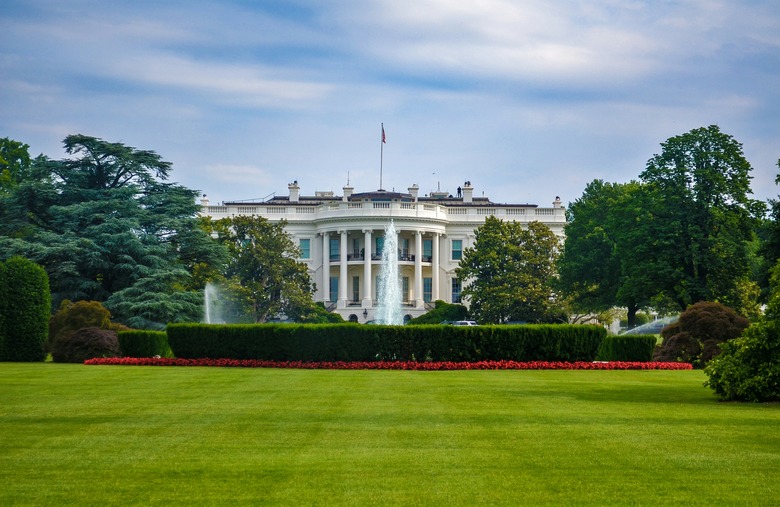
In recent times, the world has witnessed events that test leadership, gratitude, and peacemaking in global affairs. On February 28, 2025, a confrontation in the Oval Office between President Donald Trump and Ukrainian President Volodymyr Zelensky drew attention. This moment highlighted the challenges of U.S.-Ukraine relations and raised questions about gratitude, humility, and peacemaking in leadership. There may even be a state of forgiveness. As believers, we must turn to Scripture for guidance on these complex matters.
The Power of Gratitude in Leadership
President Trump criticized President Zelensky for not expressing enough gratitude for U.S. support. This moment reminds us of the importance of thankfulness in leadership. Colossians 3:15 says, “And let the peace of God rule in your hearts… and be thankful.” Gratitude strengthens relationships and fosters cooperation. Leaders who express appreciation build trust and encourage unity. Without gratitude, resentment and division can grow. As Christians, we should model thankfulness in all situations.
The Importance of Humility in Leadership
Vice President JD Vance accused Zelensky of being disrespectful and questioned whether he had ever expressed appreciation. This moment reveals the necessity of humility in leadership. Philippians 2:3 states, “Let nothing be done through selfish ambition or conceit, but in lowliness of mind let each esteem others better than himself.” True leadership requires setting aside pride and valuing others. When leaders act with humility, they open doors for reconciliation. Humility allows people to listen, learn, and work together for the greater good.
The Role of Peacemakers in Times of Conflict
As tensions rose, Trump warned Zelensky about the risk of World War III and urged him to negotiate with Russia. This warning aligns with the biblical call to pursue peace. Matthew 5:9 says, “Blessed are the peacemakers, for they shall be called sons of God.” Christians must seek peace in personal relationships and international affairs. When leaders prioritize peace, they prevent unnecessary destruction. Peacemaking requires wisdom, patience, and a willingness to listen. By choosing peace, we reflect God’s love in a divided world.
Understanding the Influence of Political Power
The Ukrainian delegation left without finalizing the minerals deal or attending lunch. This decision underscores the weight of political power. Romans 13:1 reminds us, “For there is no authority except from God, and the authorities that exist are appointed by God.” Leaders must use power responsibly and with integrity. Political power should serve the people, not personal ambitions. When leaders abuse their authority, they create instability and mistrust. Christians should pray for leaders to exercise power wisely and justly.
The Need for Discernment in Leadership
After the confrontation, Trump concluded that Zelensky was not in a position to negotiate. This decision highlights the necessity of discernment in leadership. Proverbs 2:3-5 teaches, “If you cry out for discernment, and lift up your voice for understanding… then you will understand the fear of the Lord and find the knowledge of God.” Wise leaders seek knowledge and understanding before making decisions. Discernment helps leaders navigate complex situations. When leaders lack discernment, they risk making choices that cause harm. Seeking God’s wisdom ensures sound judgment.
The Dangers of Political Polarization
Following the meeting, Trump expressed his thoughts on Truth Social, stating that Zelensky had disrespected the Oval Office. This reaction reveals the dangers of division in politics. Ephesians 4:3 says, “Endeavoring to keep the unity of the Spirit in the bond of peace.” Christians should strive for unity, not division. Political differences should not overshadow our faith. When leaders promote division, they weaken nations and communities. Believers must rise above political conflicts and seek peace and reconciliation.
The Church’s Role in Times of Crisis
The confrontation signaled a shift in U.S. foreign policy towards Ukraine, affecting future aid in the conflict with Russia. In times of crisis, the Church has a responsibility to act with wisdom and compassion. 1 Timothy 2:1-2 urges, “I exhort first of all that supplications, prayers, intercessions, and giving of thanks be made for all men, for kings and all who are in authority.” Prayer can influence decisions and bring peace. Christians must pray for world leaders and seek God’s intervention. Through prayer and action, the Church can bring hope in uncertain times.
Lessons for Sermons and Reflection
Several important sermon topics arise from this event. One is Divine Mandate vs. Political Power, which explores the relationship between faith and government. Another is Gratitude and Humility in Leadership, focusing on how leaders should express appreciation and remain humble. Loving Our Enemies in a Divided World is also relevant, reminding believers to respond with grace. Additionally, The Church’s Role in International Conflicts encourages Christians to engage in prayer and advocacy. Lastly, Christian Nationalism vs. Kingdom Values warns against prioritizing national identity over faith in Christ. These topics help believers navigate the challenges of leadership and faith.
A Test of Leadership, Gratitude, and Peacemaking
The confrontation between President Trump and President Zelensky serves as a reminder of leadership, gratitude, and peacemaking. As Christians, we must evaluate our actions in light of Scripture. By embracing gratitude, humility, and peace, we honor God in all we do. Through prayer and discernment, we can navigate challenges with wisdom and faith. In a divided world, believers must stand as beacons of hope and reconciliation.














